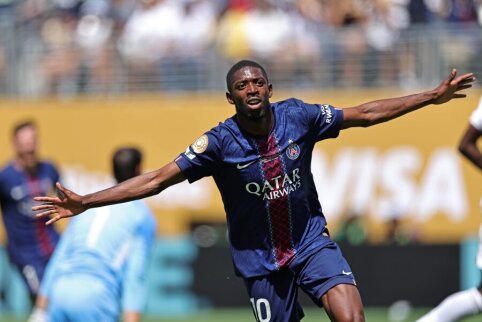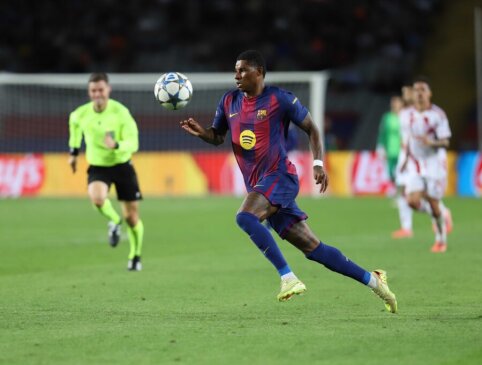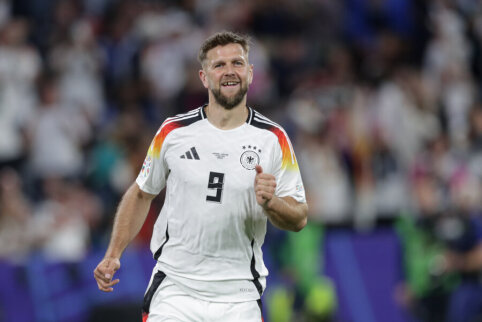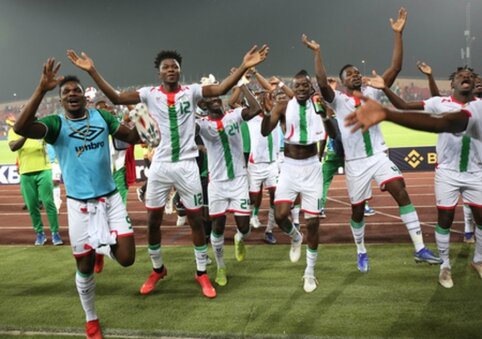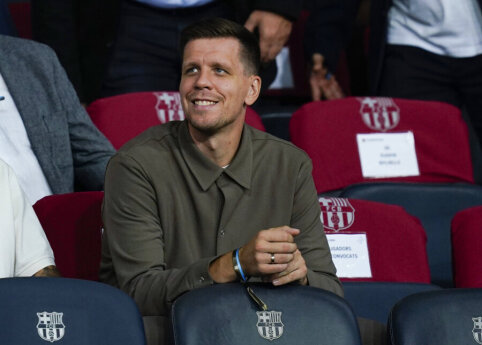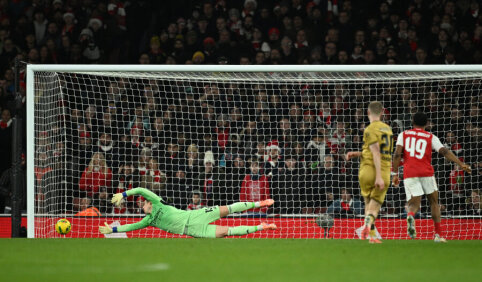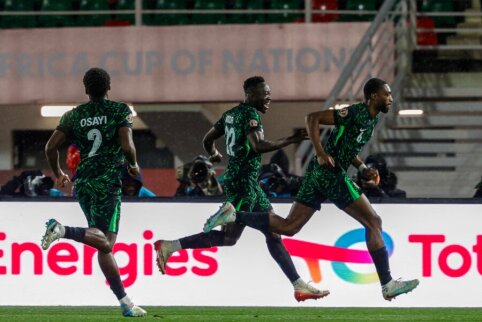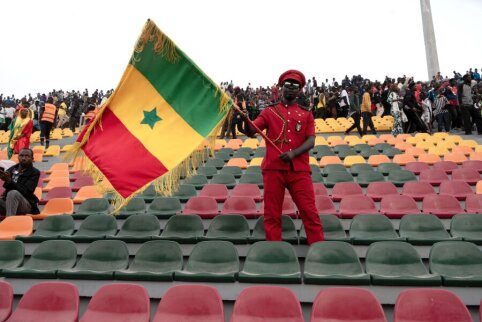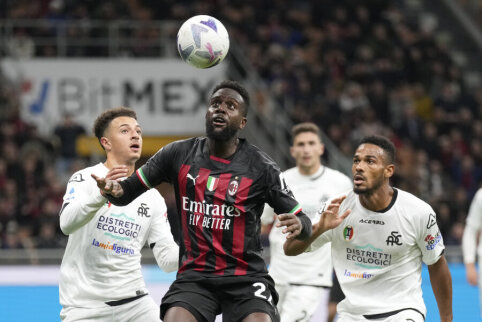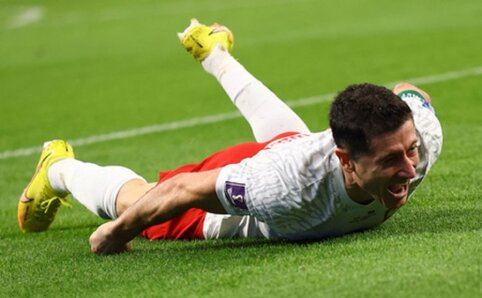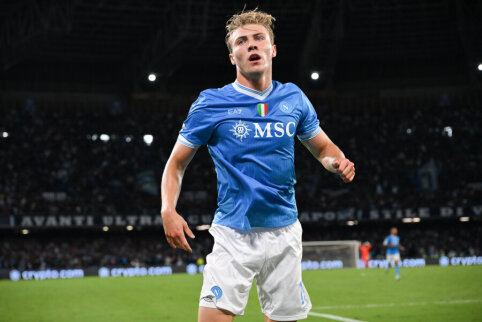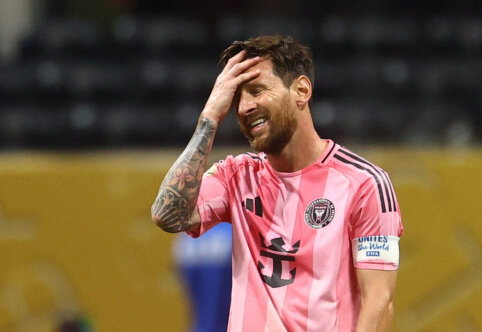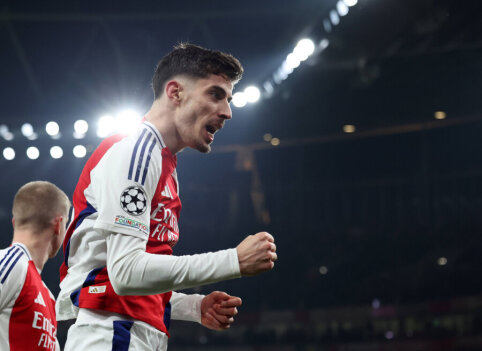 © EuroFootball.com
© EuroFootball.com
After a long break, the series of articles in "Tribūnas" continues about the World Championships that have taken place so far - website visitor Tomas suggests remembering the 1954 World Cup held in Switzerland. The 1954 World Cup took place in Switzerland. It was during the same FIFA conference held in Luxembourg in 1946 that not only the hosts of the 1950 World Cup, Brazil, were revealed, but it was also decided that the 1954 championship would take place in a country known for its watches and bankers - Switzerland. It was also decided that the best place to hold the championship, which would take place during the FIFA's 50th anniversary, would be Switzerland, as this country is home to the official FIFA headquarters located in Zurich. Although the Swiss had a full 8 years to prepare for the tournament, they still did not complete all organizational tasks. However, despite the fact that most stadiums were very small, the tournament was very successful financially. Additionally, this championship was the first in history to be broadcast on television, although at that time the championship took up very little TV airtime. The organizers of the tournament also came up with a way to profit by minting special coins made specifically for this championship. At that time, FIFA already had a new president - Belgian Rodolphe Seeldrayers, and the new leadership decided that creating a new competition system was completely unnecessary. However, one essential change was made. The group stage was run with a unique system: before the tournament even began, the two strongest national teams in each group were selected to compete against the two weaker national teams. It is worth noting that this system only worked in 1 out of the 4 groups. The first post-World War II European Championship assembled an especially strong team in Hungary - this team was prepared to triumph in this championship. The Hungarian national team scored goals with unprecedented stability. They defeated the future champions, West German footballers, 8-3, and crushed the South Korean national team 9-0. No team in the history of the World Cup had ever been considered such a clear favorite to win the World Championships as Hungary. The whole world became acquainted with such great Hungarian players as: Puskas, Kocsis, Hidegkuti, and Czibok. Another team assigned to the favorites was the Uruguayan national team, which had not yet experienced defeat in the final stages of the World Cup, and repeated this in the group stage easily defeating Czechoslovakia and Scotland. In the other groups, Brazil and England emerged victorious, taking the top spots in their respective groups. Following Brazil in Group I were Yugoslavia, while after England in Group IV advanced as the second team to the next stage was the tournament's host, Switzerland. The future champions barely made it through, after additional matches which ended with a rather modest result of 7-2, they overcame the Turkish national team. In the quarter-final match between Austria and the Swiss hosts, a new world championship record was set, Austria defeated Switzerland 7-5, making it the highest-scoring game in World Cup history, a record that remains unbroken to this day. In the other quarter-final matches, one of the favorites, Uruguay, defeated England 4-2, while the relentless Hungarians also won with the same result against the Brazilian football virtuosos known as the Brazilian national team. Later this match was known as the "Battle of Bern", as after the match, the teams' players, coaches, and officials got into a fight. Meanwhile, West Germany, having recovered from the knockout against Hungary, defeated Yugoslavia 2-0. The semifinal between Hungary and Uruguay, playing for the first time in Europe, received significant attention. The Hungarians justified all the expectations of their fans and defeated Uruguay 4-2, breaking their undefeated streak in the World Cup finals. The Germans also demonstrated excellent form, defeating their neighbors Austria 6-1 and thereby opening their way to the final of the 1954 World Cup. After a painful defeat to West Germany, the Austrians quickly recovered and in the battle for the third place, surprisingly defeated a strong Uruguayan team 3-1, winning the coveted bronze medals. The Wankdorf Stadium had the opportunity to witness the battle between West Germany and Hungary, which can confidently be called one of the best finals in history. Both teams demonstrated excellent, professional football despite unfavorable playing conditions (it was wet and rainy). This was like a rematch, as in the group stage Hungary "destroyed" West Germany 8-3. At that time, West Germany's national team coach Sepp Herberger cleverly made the Hungarians perceive the Germans as a weak team, but now, after two weeks, it was a completely different story. The final was very dramatic. Hungary quickly took the lead and was ahead with a score of 2-0, and although such a result already seemed safe for the Hungarians, Germany quickly tied the score in a familiar style and scored the winning goal late in the match. After conceding a goal, the Hungarians pressed against the German goal and even scored a goal, but it was disallowed due to offside. After several more dangerous attacks by the Hungarian national team, the final whistle of the English referee William Ling signaled that for the first time in history, the German footballers became World Cup champions. This loss for the Hungarian national team interrupted their winning streak that had lasted since 1950 and had lasted for 30 consecutive games!! Meanwhile, the German national team coach Sepp Herberger received many individual awards for his excellent strategy that led the West German national team to the heights of the World Cup. The German captain Fritz-Walter received the World Cup trophy from the legendary former FIFA president Jules Rimet himself. Incidentally, it is an interesting fact that it was at the stadium named after the legendary German national team captain, who led the team to victory in the 1954 World Cup, that is in Kaiserslautern, and it is at this stadium that the matches of the 2006 World Cup in Germany that will begin in a month will take place. This was the 5th World Cup championship in Switzerland. Championship statistics 5th FIFA World Cup Switzerland, June 16 - July 4 Winner - West Germany Number of participants - 16 Number of matches played - 26 Goals scored - 140 (an average of 5.38 per match) Number of spectators - 943,000 (an average of 36,269 per match) Top goalscorer - Seindor Kocsis (Hungary) 11 goals. Participants: - England, Austria, Belgium, Brazil, Czechoslovakia, West Germany, Italy, Yugoslavia, Mexico, South Korea, France, Scotland, Switzerland, Turkey, Uruguay, Hungary. The championship took place in the following cities - Basel, Bern, Geneva, Lausanne, Lugano, Zurich. In these stadiums - Charmilles, Stade Olympique de la Pontaise, Wankdorf, Hardturm, St. Jakob, CornaRedo. Group I Brazil 5 - 0 Mexico Yugoslavia 1 - 0 France France 3 - 2 Mexico Brazil 1 - 1 Yugoslavia Group Table: (Team, Played, Won, Drawn, Lost, Goals For, Goals Against, Points) 1. Brazil 2 1 1 0 6-1 3 2. Yugoslavia 2 1 1 0 2-1 3 3. France 2 1 0 1 3-3 2 4. Mexico 2 0 0 2 2-8 0 Group II West Germany 4 - 1 Turkey Hungary 9 - 0 South Korea Hungary 8 - 3 West Germany Turkey 7 - 0 South Korea Playoff: West Germany 7 - 2 Turkey Group Table: (Team, Played, Won, Drawn, Lost, Goals For, Goals Against, Points) 1. Hungary 2 2 0 0 17-3 4 2. West Germany 2 1 0 1 7-9 2 3. Turkey 2 1 0 1 8-4 2 4. South Korea 2 0 0 2 0-16 0 Group III Uruguay 2 - 0 Czechoslovakia Austria 1 - 0 Scotland Uruguay 7 - 0 Scotland Austria 5 - 0 Czechoslovakia Group Table: (Team, Played, Won, Drawn, Lost, Goals For, Goals Against, Points) 1. Uruguay 2 2 0 0 9-0 4 2. Austria 2 2 0 0 6-0 4 3. Czechoslovakia 2 0 0 2 0-7 0 3. Scotland 2 0 0 2 0-8 0 Group IV Switzerland 2 - 1 Italy England 4 - 4 Belgium Italy 4 - 1 Belgium England 2 - 0 Switzerland Playoff: Switzerland 4 - 1 Italy Group Table: (Team, Played, Won, Drawn, Lost, Goals For, Goals Against, Points) 1. England 2 1 1 0 6-4 3 2. Switzerland 2 1 0 1 2-3 2 3. Italy 2 1 0 1 3-2 2 4. Belgium 2 0 1 1 5-8 1 Quarterfinalists - Brazil, Yugoslavia, Hungary, West Germany, Uruguay, Austria, England, Switzerland. Quarterfinals Austria 7 - 5 Switzerland Uruguay 4 - 2 England Hungary 4 - 2 Brazil West Germany 2 - 0 Yugoslavia Semifinalists - Austria, Uruguay, Hungary, West Germany. Semifinals Hungary 4 - 2 Uruguay West Germany 6 - 1 Austria For 3rd Place Austria 3 - 1 Uruguay FINAL Bern, Wankdorf Stadium, July 4 Referee: William Ling (England) West Germany 3 - 2 Hungary 6' [0 - 1] Puskas 8' [0 - 2] Czibor 10' [1 - 2] Morlock 18' [2 - 2] Rahn 84' [3 - 2] Rahn West Germany - Turek, Posipal, Kohlmeyer, Eckel, Liebrich, Mai, Rahn, Morlock, O.Walter, F.Walter, Schäfer. Hungary - Grosics, Buzanszky, Lantos, Bozsik, Lorant, Zakarias, Puskas, Kocsis, Hidegkuti, Czibor, J.Toth Top scorers of the championship: Sandor Kocsis (Hungary) 11 goals. Max Morlock (Germany), Josef Hugi (Switzerland), Erich Probst (Austria) with 6 goals each. Previous articles in the World Cup history series First article of the series: Uruguay 1930. Second article of the series: Italy 1934. Third article of the series: France 1938. Fourth article of the series: Brazil 1950."

